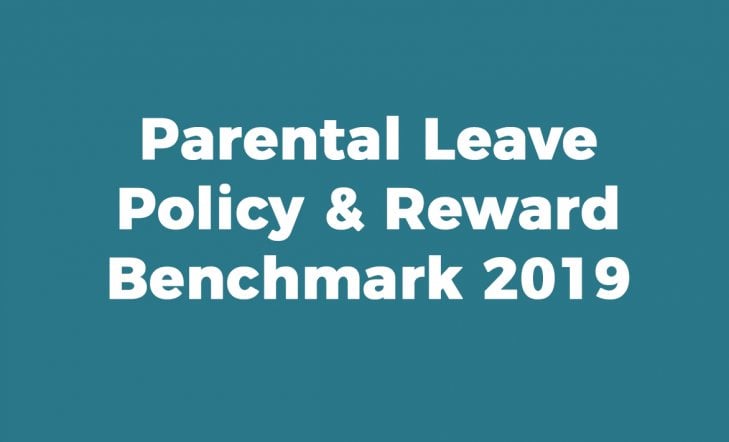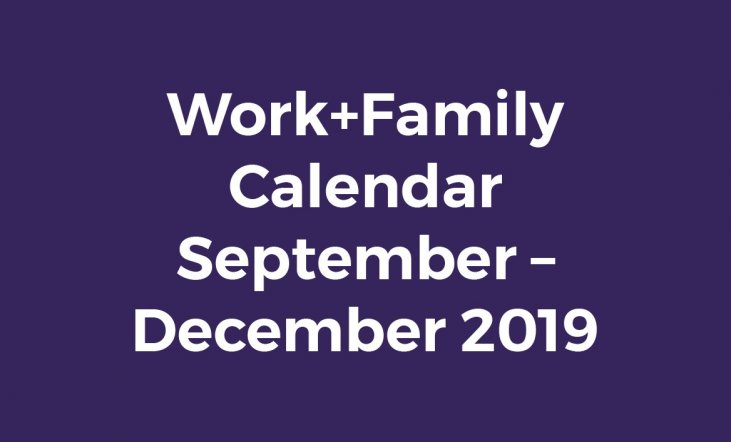Newsletter Sign Up
Regular work+family updates for
HR and diversity professionals.
I remember starting out some 20 years ago at one of the City's best law firms. 30 of us arrived to start our articles full of excitement with our new briefcases and smart suits. The intake was about 50:50 men and women. The women were generally cleverer and worked harder but it was the men who were destined for partnership.
That's just the way it worked back then...
Making the most of your female talent will be a HR priority for the next 50 years. The business case isn't complicated. Get the best women into senior positions at the expense of some of the (ahem) less talented men and you will be in a good place. And in these days of modern communication and agile working it should be easy, right? Sadly not... We will never fix gender diversity in the c-suite unless we have a proper conversation about dads.
It's all about culture
The ambition of every forward thinking modern business is to have a culture where talent is recognised and where people are judged on performance rather than face-time.
Becoming a parent is a huge deal whatever your sex. Modern dads want to be involved and whether they're vocal or not they crave a bit of flexibility. Here's the thing - you will only get the culture right if you manage to convince men to hold up their hands and be recognised as dads.
Working Families' annual survey of working parents might be a bit dry but it does highlight the point - the employees who are least satisfied with their work-life balance, and who are most likely to blame their employer, are fathers aged 26-35.
It's not easy!
Talking about dads doesn't come easily to employers. Not far below the surface most businesses are profit driven, competitive macho environments. Business is a man's world. Large companies are run by white, middle-aged men brought up on the playing fields of our finest educational establishments. We've been training for late-night meetings, family sacrifices and tough negotiations since we were born. Talking about men as loving fathers who might also appreciate a bit of flexibility - well it's just not natural.
There's a theory that we will only get equality in the boardroom when we have equality in the bedroom. That's no doubt true but asking employers to take a keener interest in the domestic arrangements of their working fathers, well, that doesn't come easily either. And then there's a third challenge for employers. If you really embrace men as dads then you will do wonders for them and their families. But know who you're helping most? Yes, it's the wives of those men and they don't actually work for you.
Will 'Shared Parental Leave' change anything?
Initially not much. The take-up will be low and there are still far too many people who haven't heard of it, never mind making use of it. But I'm actually a huge fan.
If we really want to change the way we talk about work and family then having an open conversation about who's going to do the parenting is an essential starting point. Sure SPL might be a baby step (forgive the pun) but it's an important one.
SPL is complicated (perhaps by design say the rumour mongers) which has forced HR departments to get their heads round it. We'll start hearing more and more about increased paternity packages (and yes, reduced maternity ones) and the take-up rates by 2016 will be impressive...
What you can do, and who's already doing it?
Well obviously enhancing the paternity package is a great start but also expensive. It's all about encouraging your working dads to have a conversation about what it means to be working dads. Getting them to talk is the key and men often need a not so gentle to admit to being parents and wanting some work-life flexibility.
Back in 2012 Deloitte and P&G became the first UK employers to introduce our "Being a Dad" proposition, offering all employees information and a series of webinars tailored for working fathers. Since then hundreds more employers have followed suit. Flexible working doesn't mean working less, it means working flexibly. That will not be the norm until men are doing it as well as women. It's going to take dads to lead the way and luckily (but slowly) they seem to be doing just that.
Ben Black, My Family Care












